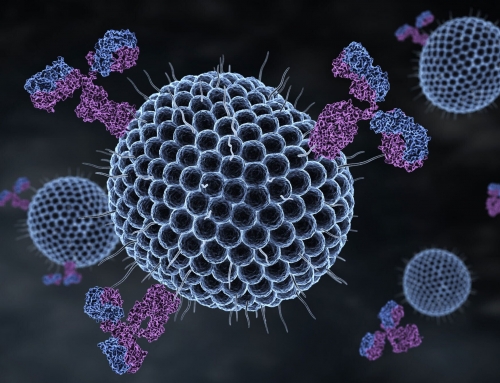 This cutting-edge platform streamlines antibody development and optimizes production.
This cutting-edge platform streamlines antibody development and optimizes production.
by Raymond E Peck, CEO of VxP Biologics
Over the past several years, the US Food and Drug Administration (FDA) has rolled out its Medical Countermeasures Initiative (MCMi), aimed at establishing clearer regulatory pathways for medical products and antibody development. The goal is for new vaccines (and other treatments) to gain regulatory approval more efficiently, so those cutting-edge treatments can be available in case of a medical emergency such as a regional pandemic.
To help accelerate MCM development, VxP Biologics has developed its Advanced Development and Manufacturing of Antibody Technologies (ADAMANT) platform. This platform integrates cell libraries, region design and selection techniques, and formulation standards into a high-throughput production format. By optimizing and standardizing antibody design and production, ADAMANT helps biologic developers bring new antibody candidates to the clinical trial stage more rapidly.
Throughout the research and production stages, ADAMANT streamlines antibody development in all the following ways.
ADAMANT aids in the selection of target antigens, CDRs, and V regions.
When developing monoclonal antibodies (mAbs) and other antibodies for vaccines, biologic developers typically begin by selecting a target antigen, which will produce the desired response in the subject’s immune system. Once they’ve chosen a target antigen, developers then focus finding specific complementarity-determining regions (CDRs) on that antibody, where that antigen can bind. Next, they select cloned variable (V) regions corresponding to the desired effector functions, or design them by grafting V regions from multiple species’ antibodies together.
In order to streamline all these processes, ADAMANT offers an array of powerful tools. The platform includes libraries of yeast and phage cells, organized by CDR, enabling researchers to quickly scan through CDRs for a wide variety of target antigens. It also includes tools for the design and selection of V regions, helping developers select or cloned heavy or light chain V regions, and thus reach a testable prototype design for their engineered antibody on a much shorter timescale.
The platform improves manufacturing ability, while supporting standardized formulation.
Once a newly developed antibody is ready to enter the initial production phase, developers must remain alert to a number of potential problems. An inadequately researched drug product may itself stimulate an immune response in subjects, rendering it ineffective (or even directly harmful). The development of co-mixtures and additional formulations may create inefficiencies, increasing costs and slowing down the timeline for regulatory approvals. Additionally, some contract manufacturers may miss opportunities to improve attributes of the product that only become apparent on the production line.
The ADAMANT platform is designed to anticipate and address all these issues. ADAMANT’s production platform format is engineered to help reduce the potential for drug product antigenicity, and its standard, systematic formulation approach helps reduce aggregation and degradation of the product. Meanwhile, the platform’s design supports similar pharmacokinetics for co-mixtures, increasing production efficiencies. And the pipeline itself is built to help identify product attributes that can be improved, and recommend specific improvements, even as it aids in the optimization of a variety of antibody characteristics and humanization protocols.
In all these ways, the ADAMANT platform not only enables developers to obtain their desired antibody design more rapidly, but also aids in the proactive identification of potential issues, and the improvement of the product before it’s submitted for regulatory approval. Thus, the platform slots neatly into the MCM development paradigm, helping new antibodies enter the clinical trial stage, and obtain licensure, in a far more efficient manner.



